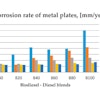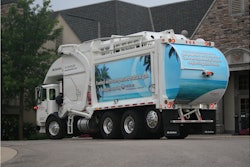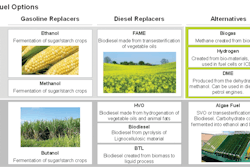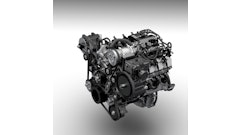The University of Dayton Research Institute (UDRI) will lead an Ohio-based research team tasked with developing affordable composite natural-gas vehicle fuel tanks under the new Institute for Advanced Composites Manufacturing Innovation (IACMI) announced by President Barack Obama in Tennessee.
Led by the University of Tennessee, Knoxville, IACMI was selected by the U.S. Department of Energy (DOE) to become a national not-for-profit institute aimed at creating better composite materials and process technologies for rapid deployment within the automotive, wind turbine and compressed-gas storage industries. Research and development within these three focus areas will be spearheaded by IACMI’s founding partners in Tennessee (University of Tennessee and Oak Ridge National Laboratory), Ohio (University of Dayton Research Institute), Colorado (National Renewable Energy Laboratory), Indiana (Purdue University), Michigan (Michigan State University) and Kentucky (University of Kentucky).
The founding partners will work with the institute’s 122-member consortium, comprising leading manufacturers across the supply chain, universities and national laboratories, to step up the development of affordable advanced fiber-reinforced polymer composites that are lighter and stronger than steel, with development taking place from laboratories to production lines. While advanced composites are already used in select industries such as aircraft, military vehicles, satellites and luxury cars, the materials are expensive, require large amounts of energy to manufacture and are difficult to recycle. IACMI’s members will work to develop low-cost, high-rate production, energy-efficient manufacturing and recycling processes for composites applications.
The fifth institute launched under the National Network for Manufacturing Innovation (NNMI) initiated by President Obama, IACMI is supported by a DOE commitment of $70 million over five years along with greater cost-match commitments from non-federal resources. The institute’s six partner states and members have committed a total of $189 million, including the state of Ohio’s commitment of $10 million. Funding for projects will be determined during an annual review process.
IACMI is expected to stimulate significant follow-on investments and create thousands of manufacturing jobs over the next decade, while supporting the DOE’s energy efficiency and greenhouse gas reduction goals.
In Ohio, UDRI will lead the initiative for the development of compressed-gas storage vessels for the automotive and trucking industry. “The demand for compressed natural gas as a lower-cost, cleaner-burning alternative to diesel and gasoline fuel for vehicles continues to grow,” says Brian Rice, who heads the Research Institute’s Multi-Scale Composites and Polymers division and will serve as director for the compressed-gas storage initiative. “In order for natural gas fuel to be efficiently and safely used to power vehicles, the transportation industry needs an affordable, lightweight but high-strength compressed-gas fuel tank. Our team will work to design and develop tanks and manufacturing processes that can be mass produced at low cost while minimizing energy use and waste production.”
Rice says the research and development through the initiative will target semi-trailer trucks first, followed by commercial box trucks and, eventually, automobiles.
Ohio is uniquely suited for the compressed-gas storage focus area because of the abundance of natural gas available and produced in the state, Rice says, which will also allow Ohio to ultimately be a leader in supplying natural gas for the transportation industry.”
In addition to developing materials and manufacturing processes, the compressed-gas storage initiative team will also work to develop jobs to meet the workforce created by the initiative, as well as to educate and train workers to fill them. UDRI will work with Sinclair Community College on workforce development, Rice says.
“UDRI is grateful to the state of Ohio for its commitment of $10 million for this initiative, as well as for the support of Ohio industry partners, the National Composite Center, Sinclair Community College, the Ohio Third Frontier, JobsOhio, PolymerOhio, and GLWN.”

















